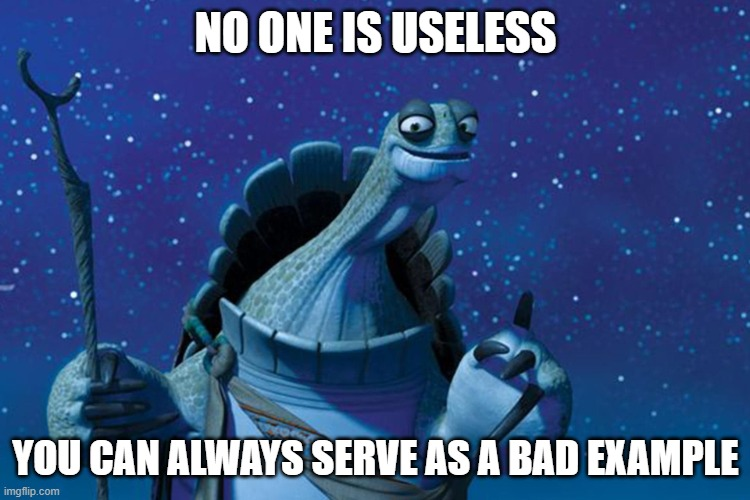We asked our AI Philosopher to evaluate and report on the moral, ethical and logical validity of the title statement, and to include its opinion on the statement as appropriate for life advice:
Here is the response
Evaluation
Moral Validity
The statement implies that everyone has some value, even if it is negative.
It acknowledges human fallibility and the potential for individuals to make poor choices.
However, it also carries a negative connotation, suggesting that the worth of a person can be reduced to a simple role as a cautionary tale.
From a moral standpoint, this statement is problematic, as it might lead to devaluing or demeaning individuals based on their mistakes or shortcomings.
Ethical Validity
Ethically, the statement raises concerns as it can lead to judgmental behavior and might contribute to a culture of shaming and exclusion.
Instead of promoting empathy, understanding, and personal growth, this statement encourages the labeling of individuals as "bad examples."
In an ethical context, it is important to respect the dignity and worth of every individual, acknowledging that people can learn, grow, and change over time.
Logical Validity
The statement has some logical merit.
In a practical sense, it is true that observing the mistakes of others can provide valuable lessons and help people avoid making the same errors.
However, the statement oversimplifies the complexity of human beings and their various roles in society.
It does not account for the possibility that an individual may serve multiple purposes and contribute in different ways, both positively and negatively.
Opinion on Appropriateness as Life Advice
As life advice, the statement has limited appropriateness.
While it might encourage learning from the mistakes of others, it also promotes a negative outlook on people and their potential to contribute meaningfully.
A more constructive approach would emphasize personal growth, empathy, and understanding, encouraging individuals to learn from their mistakes and the mistakes of others without reducing anyone's worth to a singular negative aspect.
In conclusion, while the statement has some logical validity, its moral and ethical implications make it an inappropriate piece of life advice.
A more balanced perspective would emphasize the importance of learning from mistakes while respecting the dignity and potential of every individual.

